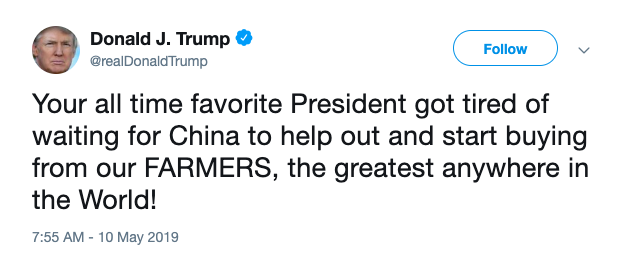What did Donald Trump do today?
He insulted the Duchess of Sussex right before he visits the UK.
In an interview with the British tabloid The Sun published today, Trump was told that called Meghan Markle—the biracial American-born actress married to Prince Harry—had opposed his election in 2016.
Trump replied, "I didn't know that she was nasty."
Apparently realizing too late what he'd said, Trump then backtracked, saying that he was sure Markle would do a good job as a member of the royal family.
Markle makes at least the third woman in the last few years that Trump has dubbed "nasty" for opposing him politically. The others are Sen. Kamala Harris (D-CA), who is running for president, and his 2016 opponent Hillary Clinton.
Of course, Trump's temper and hunger for the spotlight have led him to publicly insult almost everyone and everything at one point or another. (The New York Times has counted 598 targets just going by his Twitter feed, as of last Friday.) But Trump's insults are usually much more intense and frequently obscene when he feels provoked by a woman.
The slur on Markle means that Trump has gone after Prince Harry's wife and mother. Weeks after her death, Trump bragged in a radio interview that he "could have nailed" Princess Diana, but also said that she was "crazy." (In reality, according to a friend of Diana's, she was worried by Trump's stalker-like behavior towards her.)
UPDATE, 6/1: An official Trump campaign Twitter account called this "fake news," saying that the media was "falsely claiming President Trump called Meghan Markle 'nasty.'" The tweet included audio of Trump clearly saying exactly that.
UPDATE, 6/1: An official Trump campaign Twitter account called this "fake news," saying that the media was "falsely claiming President Trump called Meghan Markle 'nasty.'" The tweet included audio of Trump clearly saying exactly that.
Who cares?
- Inability to bear any kind of criticism, no matter what the circumstances, is not a sign of good mental health.
- This is a pretty low diplomatic bar for Trump to be unable to clear.
- It's wrong to lie, and it's wrong and stupid to lie about whether you said something there's audio tape of you saying.













